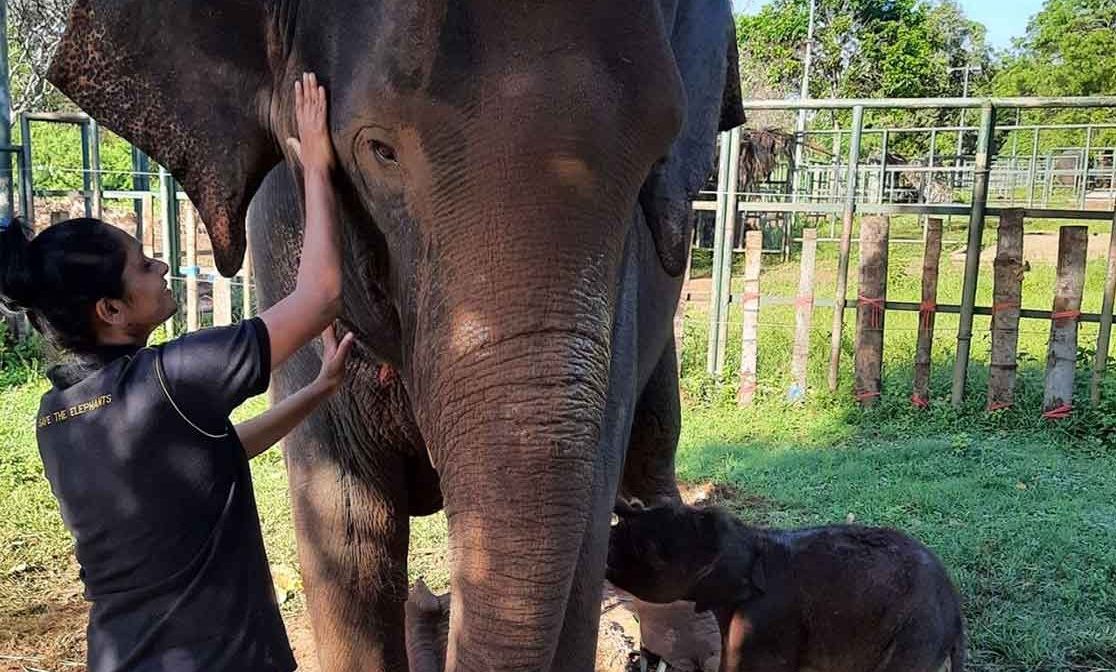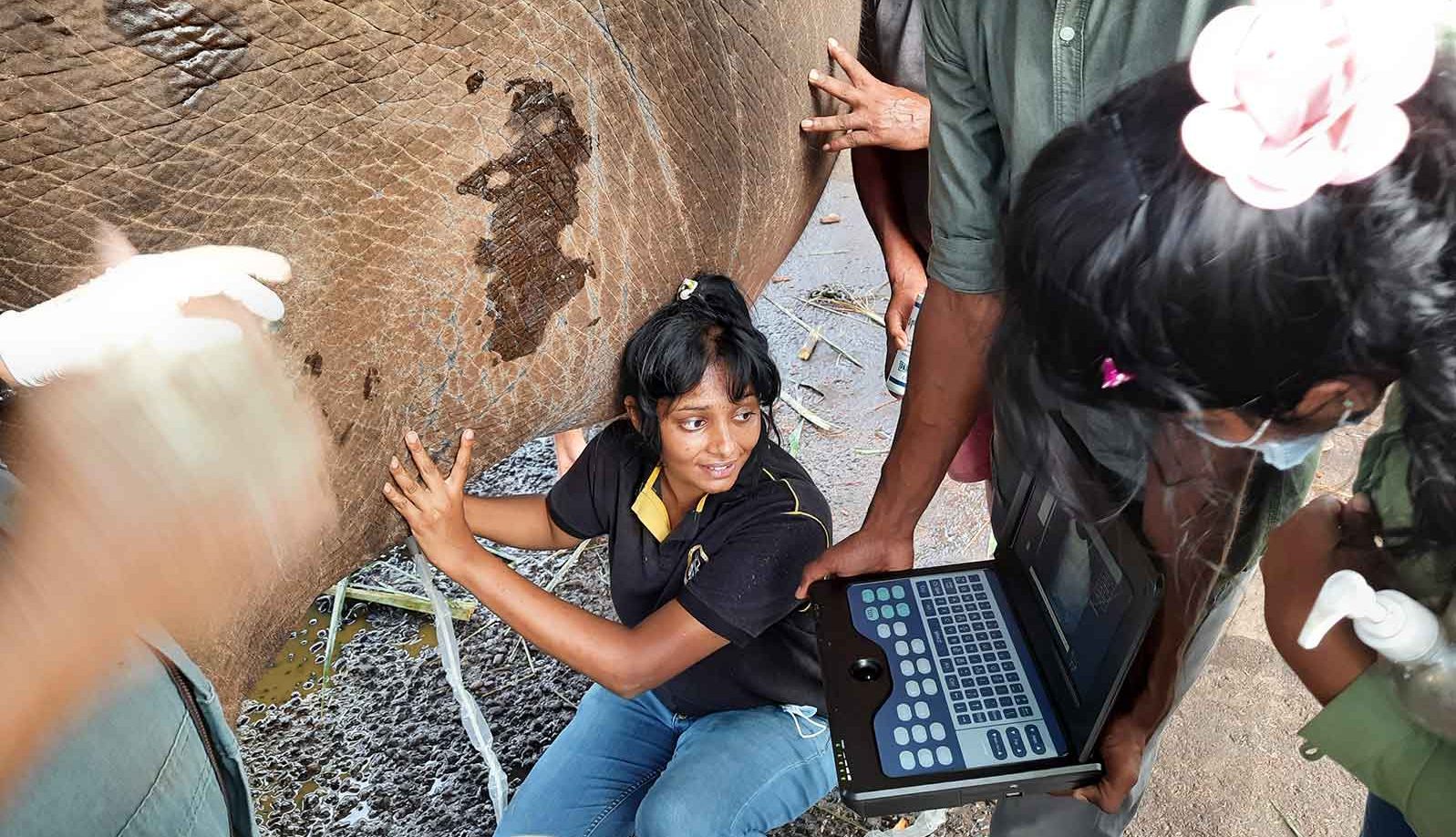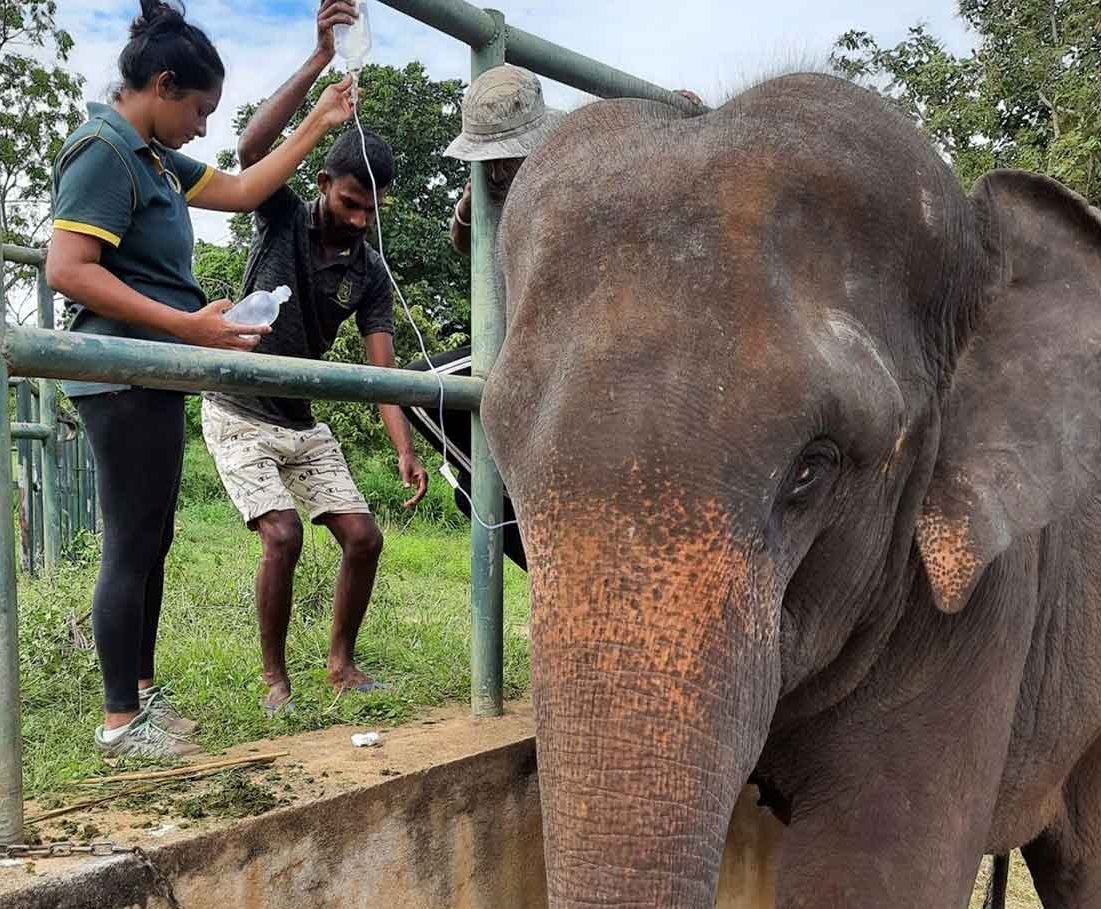Dr. Kalani Piyumika Samarakoon
Bachelor of Veterinary Medicine & Animal Science. February 2012
Faculty of Veterinary Medicine & Animal SC., University of Peradeniya
What do you love most about being a vet?
While many may believe the major difference between animals and humans is verbal communication, I surprised my parents from my early childhood by talking with animals and calling them my best friends. I believe I was chosen to help animals in need. What I love the most about being a vet is that I am allowed to be with beings that I love and am able to communicate effectively with throughout my career.
What are your biggest challenges?
My biggest challenge was to be an Asian woman and thrive in the field of wildlife conservation. In Sri Lanka, wildlife medicine and conservation is a subject which has many obstacles for a woman with personal commitments. Being a veterinarian, in many field duties, you are supposed to lead a very strong & adventurous male subordinate staff, and the work always demands high emotional & physical strength. The veterinary team always accepts that the veterinarians must take responsibility for any decisions and tasks to be performed in highly risky situations, where we need to deal with wild creatures with minimal tools & resources. Therefore my work has always required the highest level skills of effective communication, leadership and understanding in addition to confidence and professionalism.
What are the biggest challenges you believe the vet profession is facing in your country?
Currently, Sri Lanka as an entire country is facing the worst economic crisis in its history. Many of the most capable human resources are leaving the country, and the rest who stay are struggling to survive with the most basic resources. Even when skilled young veterinarians are available in the country, opportunities for them to work in there area of passion are very scarce. I strongly believe that knowledge and skills on veterinary health practices should be sharpened with the most recent technical inventions along with a deep understanding of biological principles underpinning wild animal management. But, the majority of Sri Lankan veterinarians lack the exposure to highly professional veterinary schools or CPDs that are engaged in advanced research or guidance in the more advanced subjects in veterinary medicine such as epidemiology, pathology and control of diseases in wildlife. The few opportunities received from global scholarships are very competitive.

How has VI helped you in your career?
VI has been helping with my current work station “Elephant Transit Home (ETH), Udawalawa” for years. The most important contribution VI has ever given us is unconditionally believing in the struggle we go through daily to conserve SL wildlife. Naturally, being one of the world’s best places to study Asian elephants/biodiversity; ETH has drawn lots of attention from wildlife scientists, fundraisers, researchers and students. We have had the chance to collaborate with many international organizations, but I would confidently declare that unlike many of them, VI has always appreciated the hard work and efforts of SL veterinarians. VI has supported us economically in facilitating the technical and other essential needs of ETH for animals who are under health & conservation interventions regardless of the species or their conservation status, creating opportunities for veterinarians to dive deep into their profession in a satisfying way.
VI actively supports professional training (workshop & higher education) for Sri Lankan zoo and wildlife veterinarians. VI also gave me the chance to build a professional network with giants of the industry from all over the world, helping me with career advice & tips whenever I feel like I am in need. Finally, VI has not only believed in increasing my professionalism but has always been by my side, repeatedly reminding me how important it is for a veterinarian to be emotionally and psychologically strong. VI has presented me with plans to strengthen my abilities and personally providing me moral support, encouragement, and mental health programs.

Where do you see VI being most helpful in veterinary capacity building for you and for your country? What can VI do to have the greatest impact?
I strongly believe that the multiple contributions VI has offered, in training and educating veterinarians and staff is the most helpful capacity building for us. As I have mentioned, being a country with so many needs, but very little economic strength, opportunities for veterinarians to reach out for extensive skill development programs are very competitive and expensive. Therefore, with the continuous struggle for survival, many of us would be discouraged in achieving our career development goals. VI has managed to provide wonderful opportunities to change our attitudes through training. VI’s great efforts in building skills with supporting materials and with the great international veterinary network it has, have made us quite strong and confident in our profession. I believe such work largely impacts by building professional dignity within us and motivates us to engage in our duties with more passion & positivity.
What are you most proud of?
I think I am most proud to call VI my “friend in need!” I feel it is quite a dream to have such a big organization with such big dreams standing beside me, motivating and believing in me even in the instances when I wanted to give up. I think being with VI introduced me to positivity & confidence. I am very proud to be what I am today holding hands with the VI mission in healing the planet. I would never be the veterinarian I am today unless I was constantly supported and cared for by VI. I am very proud to have become a professional (from what I was) who can be a help in reaching VI goals in servicing wildlife conservation.
On the other hand, at the local level, it excites me to keep my hands involved in the day-to-day activities in the clinic and not to lose contact with our clients and the animals. It is something that is physical, active, and keeps up my skills. It also keeps me in close contact with the issues facing people today and therefore their needs, which helps me when we are designing social projects.
What are you most excited about in your work with VI?
I am very excited to work with the high standards of the global veterinary network within VI. I have met a few giant figures, and I am very much looking forward to sharing their knowledge and experiences to sharpen my skills and services in rehabilitating wildlife and helping young veterinarians with the passion to engage in hands-on wildlife experiences.

Where do you see the future with VI being involved?
With the ongoing situation in Sri Lanka, it has become quite challenging to take care of wildlife. With minimal resource availability, the conservation foundations are gradually breaking into pieces. Sri Lanka is very much in need of a strong self-sustainable team who can carry out the responsibilities of wildlife conservation, independent from government assistance. I strongly believe that VI’s involvement in such a program would support the critical stages of wildlife conservation in Sri Lanka. The program would not only support wildlife but indeed, also the survival of personnel with the passions and skills to heal the planet while serving wildlife.

